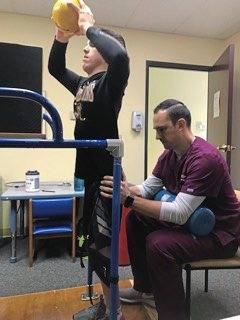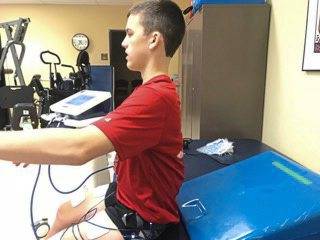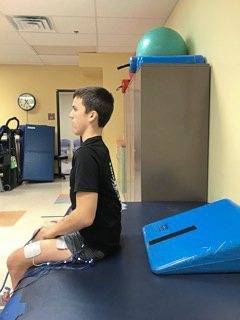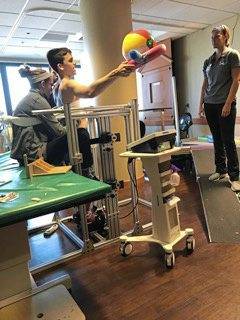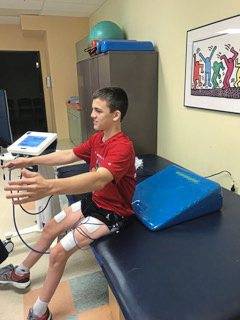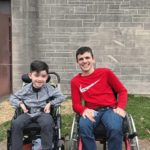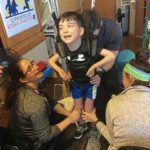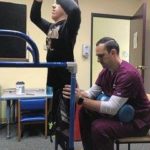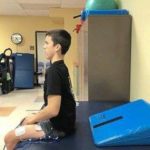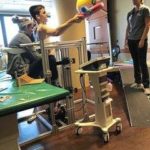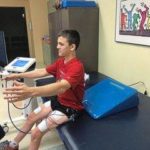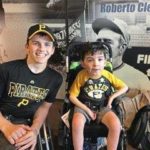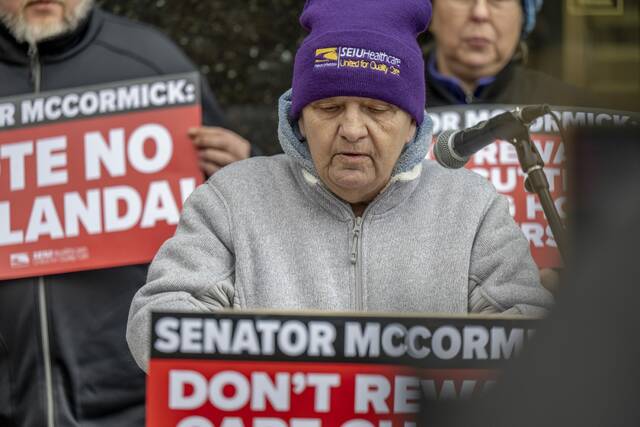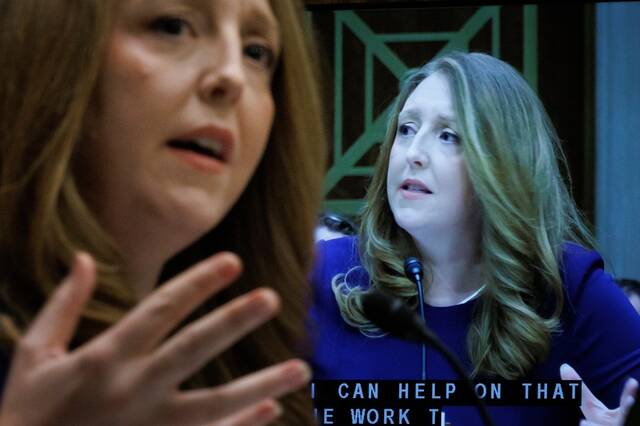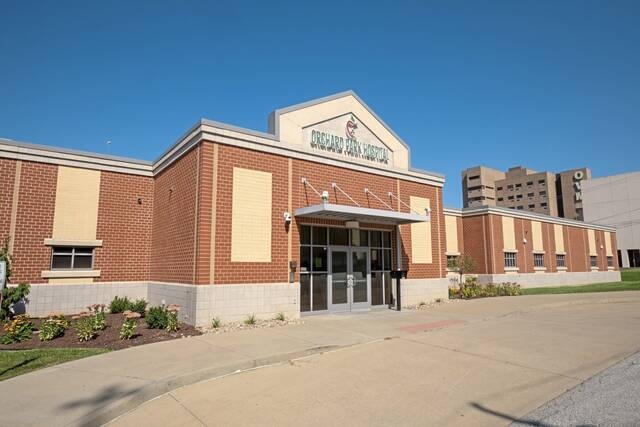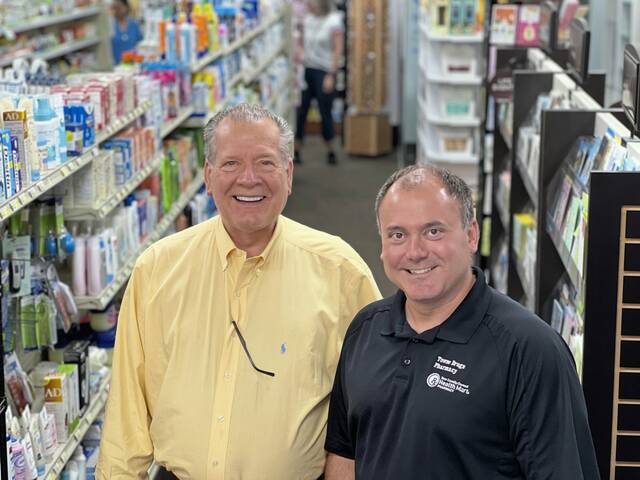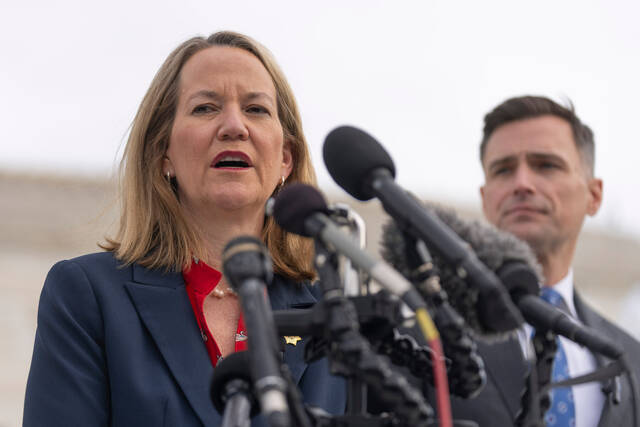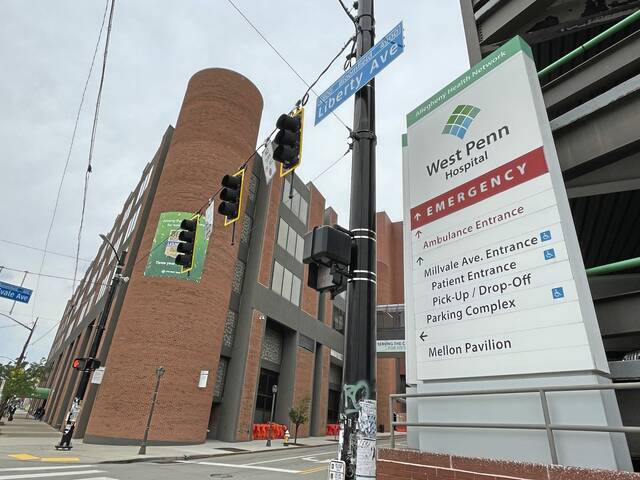In church with their son Alex, Eric and Amy Brown helped him stand while he held onto the pew in front.
They braced his knees.
The song “We Shall Rise Again” played.
“Alex now is very accustomed to standing at church with some help and also kneels,” says Amy Brown of Cranberry. “We feel ‘Rise Again’ is a significant message of hope for spinal cord injury recovery.”
That song title became the name for Rise Again, a nonprofit started by the Browns that supports individuals with spinal cord injury or illness to reach beyond expectations.
Rise Again will also provide grants to professionals and organizations that focus on improving the quality of life of those affected by spinal cord injury or illness.
“Little did we know how life-changing our son’s diagnosis would be,” Amy Brown says. “When we were going through this, we had no one to talk to; so we immersed ourselves in research and made some wrong turns down the road. We want to help people.”
Where it began
Alex, now 13, had a spontaneous spinal epidural hematoma at age 4 on Oct. 20, 2009. He had neck pain.
The next day, he wasn’t able to stand up. He had blood in his spinal column, but tests were unable to detect a cause.
Alex spent months in intensive care and was released to an inpatient rehabilitation facility, The Children’s Institute in Squirrel Hill. He then went to Frazier Rehab Institute, part of the Christopher & Dana Reeve Foundation NeuroRecovery Network in Louisville, Ky.
“Inspired by our son, Alex, we want to allow more people with spinal cord injuries to explore what opportunities are out there for recovery,” says Amy Brown. “It is expensive to travel and stay in these places, plus some treatments are considered alternative/holistic, such as acupuncture.
“Medical insurance does not assist in these costs,” she says. “We want to raise money to allow people in our area with a spinal cord injury the chance to reach beyond expectations.”
They also want to help with training of therapists in Western Pennsylvania.
Transverse myelitis
Rise Again’s fifth annual Purse Bash is from 2 to 4 p.m. March 30 at St. Ferdinand’s Church Hall in Cranberry. Tickets are $40.
Someone who will definitely be at the purse bash is Jennifer Nachreiner of Hampton. Her son Nolan, 5, was diagnosed with transverse myelitis, or inflammation of the spinal cord, on Jan. 30, 2016.
He was acting funny one day when she put him in the car to attend a birthday party. By the time they arrived, he had lost all motor and sensory function below the neck.
Although some people recover from transverse myelitis with minor or no residual problems, the healing process may take months to years. Others may suffer permanent impairments that affect their ability to perform ordinary tasks of daily living, according to the National Institute of Neurological Disorders and Stroke.
There is a wide range of results in the recovery process, Amy Brown says. And there is more to recovery than walking. Injury to the spinal cord leads to other changes such as loss of bowel, bladder and sexual function, low blood pressure and chronic pain.
Jennifer Nachreiner says Nolan is making progress and can do things like play on an iPad. His wrists and fingers are starting to regain movement after being paralyzed for three years.
The Nachreiners sought aggressive therapy at Frazier Rehab.
Best place to be
“This is the best place for these kids to be,“ says Jennifer Nachreiner, who met Amy Brown through the therapy team at the Children’s Institute. “Amy is such a wonderful resource. She mentors those on this unfortunate path. With the purse bash, we hope to reach more people.”
In fall 2012, Frazier Rehab expanded to include pediatric participants. In the fall of 2016, a second pediatric site was added at the UPMC Children’s Hospital of Pittsburgh.
Nearly 1 in 50 people in the U.S. is living with a paralysis, according to christopherreeve.org.
According to a blog on the website, people living with paralysis are often unable to afford health insurance that adequately covers the complex complications that are commonly linked with these conditions. And, like many of those living with chronic illness, they are frequently forced to rely on friends or family members to serve as their primary caregivers.
Jennifer Nachreiner says it is less about being able to afford proper insurance coverage and more about the fact that insurance just does not cover all of the things that people with paralysis need to live a normal and independent life. That includes having an accessible vehicle, homes and adaptive equipment.
Amy Brown says many with spinal cord injuries are limited to the amount or where they can go for therapy.
Hearing from an expert
Dr. Amit Sinha, assistant medical director at Children’s Hospital Rehabilitation Unit, the pediatric acute inpatient rehabilitation unit of UPMC Children’s Hospital of Pittsburgh in Lawrenceville, says the thing about spinal cord injuries is there are no medicines to heal the spinal cord.
“We can’t reverse what happened,” he says.
But there ways to help these young individuals regain what has been lost. Therapy can assist with everyday functions, like getting in and out of a car, maneuvering around the house and navigating around school. It’s important to include the entire family because everyone in the family is affected.
Every case is different, he says.
“Most children are resilient,” he says. “And younger children cope well, because this is their world. Teens know what happened before.
“There are resources to help with things that insurance might not cover, and supporting an organization such as Rise Again will create awareness and help raise funding needed for everything from medical supplies — such as shower chairs and wheelchairs — to sports activities such as adaptive rugby and sled hockey, because being physically active is important,” Sinha says.
Details: riseagainsci.org




